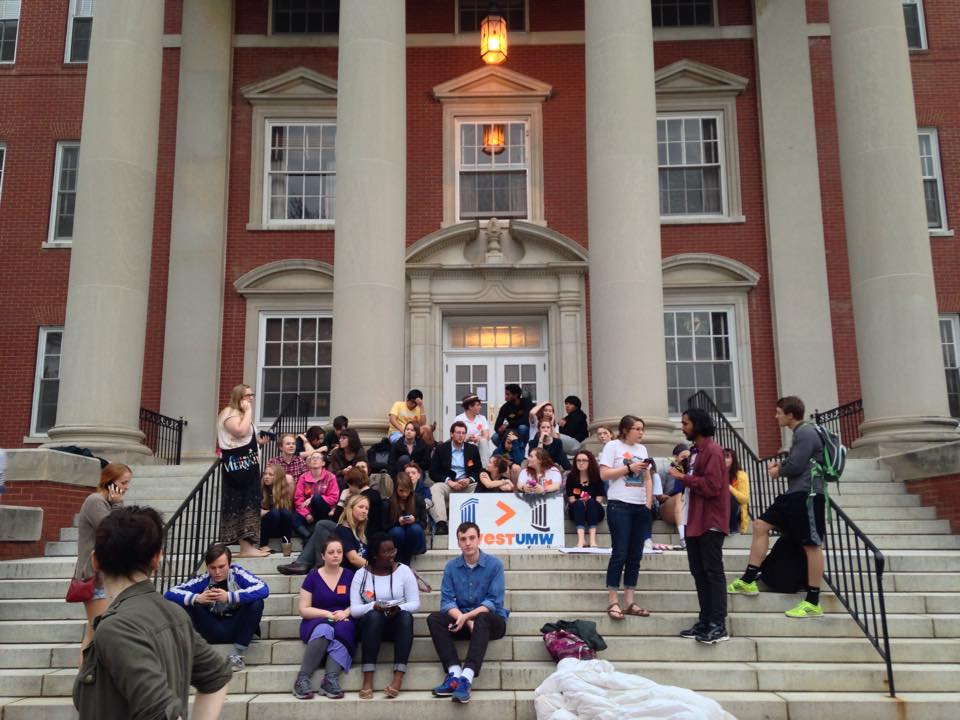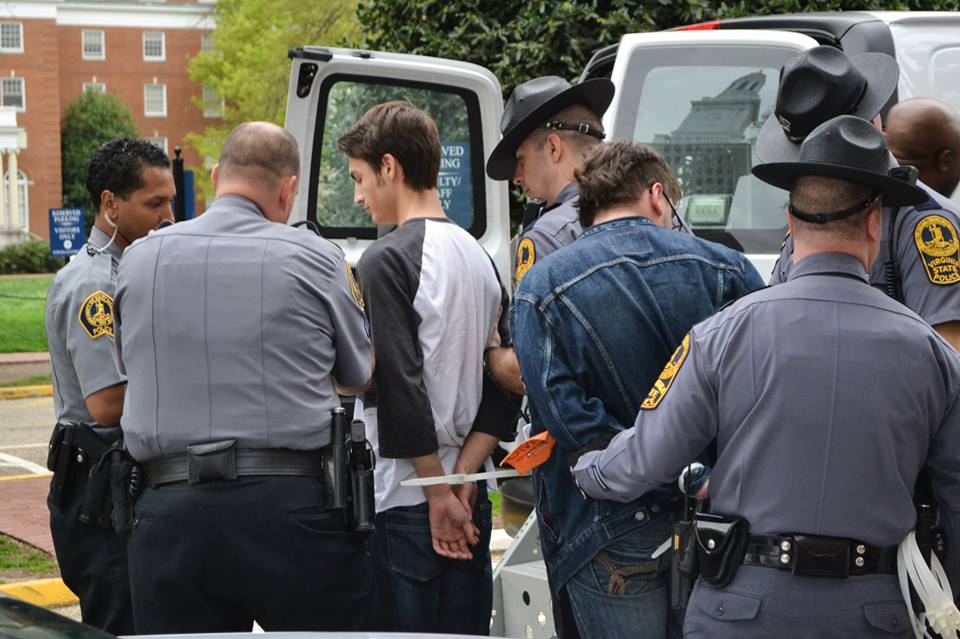This blog post was written by Rabib Hasan, a student organizer and leader from Divest UMW
On April 15, two students and one local activist were arrested by the order of the University of Mary Washington’s Vice President and administration. They were just three of over 150 students, faculty, alumni and community members who participated in an extended sit-in that lasted 21 days inside UMWs administrative building. These individuals were among the choir of voices that demanded that their university take meaningful steps toward mitigating climate change by withdrawing its investments from the fossil fuel industry. On Tuesday, they defended themselves against the criminal charges the UMW administration summoned against them.

DivestUMW was one of many university campaigns that put their pens down and feet to the ground in order to take part of a national spring escalation. Students and faculty alike asked their governing body whose side they were on — insisting that if they willingly invest in the most destructive industry on the planet, then they also are choosing to ignore the safety and viability of the future of their own students. The question resonated with the mainstream as the conversation of divestment broke into news sources such as Politico and the New York Times, and while answers were not given by our administration verbally, they surely were made clear through their action and complacency.
While divestment was slowly breaking into headlines, it had entirely consumed the conversation on campus as the days of the sit-in began to add up. But as several other concerns were raised to the administration by adamant student activists, including rape-culture and racism, the conversation became more pervasive. Talk of the administration’s conduct with these issues could be heard in the dorms, the classrooms, and cafeteria line, but the concerns and questions being asked remained unanswered by the admin and rector of the BOV. As the hallway continued to fill with more students, faculty, and alumni joining sit-in and the silence and inaction from our BOV and admin continued, the question reflected a more deeply rooted issue: is there any place for the voice of faculty and students in the decision making our our university, or are we meant to remain passive bystanders within our own community?
We received our answer when the administration not only silenced those voices but criminalized them. One of the arrestees, a freshman, who attended orientation and listened as his administrators told him that UMW would be a place to find and express himself, was escorted into a paddy-wagon on the order of those same administrators just seven months later. Despite the extreme measures used by the admin, students continued to voice their concerns as 100 of them protested outside of the BOV two days later.

Our escalation did not lead to a win for divestment, but it was through that process that we exposed a greater lesson about our university and the mode in which it is governed. Seeing our administration criminalizing its own students to protect its fossil fuel assets has helped us realize just how urgent and important the work of student activism is at UMW.
Students are ready to have a conversation about what a progressive institution of education should look like. And the students now know that, in order to fully realize that vision, it’s vital that they play a direct and active role in the evolution of their university. Students are aware that in order to challenge the powerful corporate structure that is the fossil fuel industry, they must challenge those who are complacent with this system in their own community. There is now a common understanding that change does not happen just by thinking from the top of academia’s ivory tower, but in our own community where we are rooted in our values and grounded on our feet.
From the lessons we learned, progress now looks different for our initiative. From the sit-in came an unexpected result. We saw students talking about the issues at a deeper and more conscious level. As this culture of activism spreads, and our awareness grows, our community will become stronger, and inevitably, better.
Click here to like and share the news that the people arrested were found not guilty.